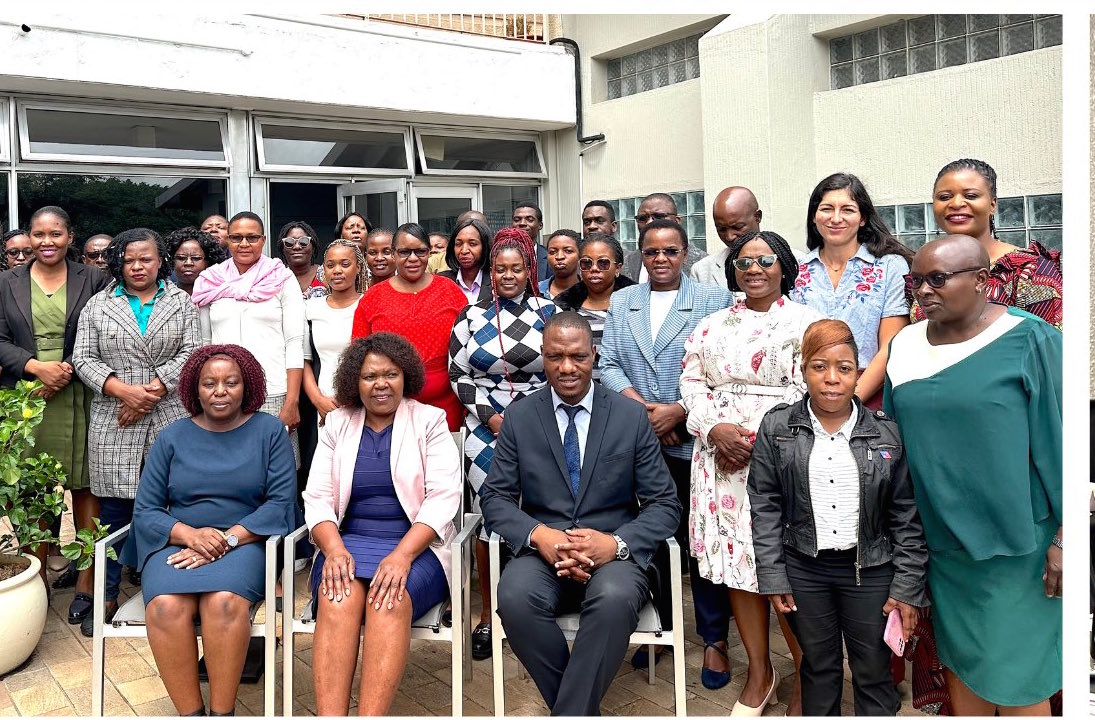|
Getting your Trinity Audio player ready…
|
Zimbabwe’s Gender Equality Index report marks a crucial step in the collective journey toward fostering a society where gender equality is not only acknowledged but actively pursued, a senior government official has said.
In a speech read on her behalf, the Chief Director, Gender Policy Planning and Programme Management in the Ministry of Women Affairs, Community, Small and Medium Enterprises Development said the Zimbabwe Gender Equality Index (GEI), a tool to measure the gender equality progress.
“To measure progress made by Zimbabwe towards the achievement of gender equality, the Ministry in collaboration with the UN Women and Zimbabwe Statistics Agency (ZIMSTAT) engaged in a process of constructing the Zimbabwe Gender Equality Index (GEI), a tool to measure the gender equality progress. The GEI gives more visibility to areas that need improvement and ultimately supports policymakers in designing more effective gender equality measures.
“Prior to this validation workshop, a scoring workshop for the Gender Equality Index was convened which involved meticulous and comprehensive assessments of various indicators to gauge the state of gender equality in Zimbabwe and this wild foundations for informed discussions for this validation workshop,” she said.
The Gender Equality Index report not only quantifies efforts but also serves as a compass guiding stakeholders toward a more inclusive and equitable Zimbabwe.
She paid tribute to the researchers, experts, and advocates who tirelessly worked to bring forth a comprehensive assessment. Their dedication empowers the government to make informed decisions and implement targeted interventions.
UN Women provided unwavering support throughout the construction of the Gender Status Index for Zimbabwe. Your commitment to advancing gender equality has been instrumental in shaping this crucial initiative.
Consultants Dr. Joyce Malaba and her partner Ms. Judith Kaulem guided the intricate process. Their expertise, dedication, and tireless efforts have been invaluable in ensuring the accuracy and relevance of the Gender Status Index.
Speaking on the same occasion, UN Women Deputy Country Representative, Ms. Loveness Makonese said gender statistics are essential for the advancement of gender equality and women’s empowerment (GEWE) at the global, regional, and national levels.
This is per the global and national commitments on gender equality and women empowerment including CEDAW, Beijing Platform for Action (BPFA), the Commission on the Status of Women (CSW), SDGs, and National Development Strategy 1. (NDS1)
“These frameworks call for the collection and dissemination of quantitative and qualitative gender-disaggregated data and information for planning and evaluation. The SDGs demand the availability of quality, accessible, timely, and reliable disaggregated data for the measurement of progress and to ensure no one is left behind. The NDS 1 also emphasizes the need for data to monitor and evaluate its implementation.
“Gender statistics is a fundamental tool for devising policies to achieve GEWE; for assessing the impact of policies and ensuring accountability; evidence-based decision making, planning, implementation, monitoring, and evaluation, since women and men have different needs, access, and control over resources in society,” Ms. Makonese said.
In Zimbabwe, the ZIMSTAT, as the coordinating agency of the National Statistical System (NSS), monitors all outputs and activities of the National Strategy
In 2015, the GoZ launched the National Monitoring and Evaluation Policy (NMEP) which calls for Government ministries to develop M&E systems to track and monitor their programmes. With the support of the UN, the government has developed various M and E frameworks and guidelines such as the National M and E Framework for GEWE, and National Monitoring and Evaluation Guidelines.
If utilised effectively, Ms. Makomnese said these frameworks will provide the overarching policy implementation modalities for monitoring, tracking, and reporting on the SDGs as well as contribute to improvement in the availability; accessibility, and utilization of sex-disaggregated, and gender-differentiated data to inform policies, programmes promoting gender equality and women’s rights
The women of Zimbabwe make a sizeable contribution to the continent’s economy. They are more economically active as farmers and entrepreneurs than women in any other region of the world. What is more, there have been many recent advances in women’s empowerment on the continent, including many changes in laws to promote equal rights for women. Many African countries have closed the gender gap in primary education.
“While progress has been made, gaps remain with regard to the SDG gender-related Indicators, and this has mainly to do with the lack of detailed disaggregation. Gaps are also evident with regard to data on Gender-Based Violence (GBV); women in the informal sector, financial inclusion, governance, peace, and security; among others.
“Zimbabwean women are held back from fulfilling their potential by many constraints, whether as leaders in public life, in the boardroom, or in growing their businesses. This in turn holds back the potential of the Country’s economy. Women spend way too much time in unproductive pursuits, such as fetching water and wood.”
She added that to understand the degree of inequality between women and men, it is therefore important to adopt a statistical measure that brings together data pertaining to the many different aspects of life.
Therefore, coming up with the Zimbabwe Gender Index will assist the country to continually measure and assess its progress in terms of gender equality and women empowerment.
The African Gender and Development Index (AGDI) remains a Gender Equality Index (GEI) of choice, given its various strengths which include comprehensiveness; simplicity; ownership; and Africa-specific focus.
“We, therefore, applaud the Government of Zimbabwe through the Ministry of Women Affairs, Community, Small and Medium Enterprises Development and the Zimbabwe Statistics Agency for constructing the Gender Equality Index for Zimbabwe for the first time as this will go a long way measuring the gap in the status of African men and women and report on progress made in meeting international and regional commitments on gender equality, as well as assessing the progress made by Governments of African countries in implementing policies aimed at promoting gender equality and the empowerment of women and girls,” she added.
